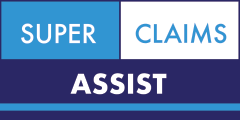A successful TPD payout relies on your claim containing enough evidence to satisfy the criteria of your super policy. Your claims assessor requires important medical evidence to show if you are able to return to work in your current job, if you can return to any form of employment and if your disability stems from losing major functions of your body. Sometimes, even though you may have a valid claim, you may be rejected because you unintentionally provided insufficient paperwork and evidence which is required. In addition to medical evidence, you also need to prove that you are unable to return to work in your current occupation. Having a professional on your side makes a world of difference when trying to sort out which evidence is required. Read on to find out what evidence you are required to provide for a successful TPD claim.

Is Medical Evidence Important for TPD Claims?
Medical evidence is crucial to ensuring you are able to support your claim for total and permanent disability insurance. You will need a medical professional to provide you with all the correct certificates and reports to ensure you have evidence of a medical ailment which is impacting your ability to perform your everyday job. Super Claims Assist is able to provide assistance with our panel of medical specialists that will ensure you have your diagnosis provided in writing and in a legal format. We are able to ensure the medical reports explain your condition and clearly explain why it prevents you from working. It is important your doctor knows what TPD is, so they are able to make note of this and comment on your situation. We are fully involved in this process to ensure all the right elements are included to give you the best chance of a successful claim.
What Additional Medical Records Are Necessary?
During the claims process, you may also be asked for additional medical records and evidence – this is fine and a normal part of the process. It may be the case you will need to request medical records from previous injuries if it is relevant to your claim. For example, this could be if in the past you injured your knee, but now suffer from serious arthritis in both your knees. The pain disability is the chronic knee pain, but this could have been linked to your knee injury and overcompensation with your other leg.
Should I Include Evidence of Ongoing Medical Care?
If you suffer from an ongoing disability which requires ongoing medical care and assistance, this is also very important to include in your claim. A TPD payout will require you to show that you are unable to attend work due to on-going appointments, rehabilitation or medical treatment.
How Does Work History Affect TPD Claims?
To qualify for a TPD payout from your superfund, you will need to meet your superfund’s policy requirements of your minimum work history. In most circumstances, you must show if you were able to work for a minimum of 3 months prior to your injury causing disability. Evidence for this can be shown through your work contracts, payslips and offer letters. You may also be required to show if this was full time or part time work and how many total hours you worked at the company.
Do you need help with everyday tasks?
Depending on your super fund’s policy, you may also be required to show that you need help with everyday tasks, and that your disability prevents you from living an assistance-free day to day lifestyle. This can be shown through proving you have a carer in the form of professional or family help and the on-going costs associated with this.
Why Seek Professional Help for Tackling TPD Claims?
As you can see from the above levels of evidence, there are a few hurdles which make it difficult to tackle the claims process alone. Seeking professional help for your claims process through Super Claims Assist allows you to easily understand everything required to meet your super funds criteria. We also understand what additional requirements may be needed to strengthen your claim, such as a personal statement.
Is Going It Alone Advisable?
The bottom line – don’t go it alone. There is professional help out there to assist you on a no-win, no-fee basis.
If you require professional legal assistance or would like to chat about evidence for your TPD Claim, book in a no-obligation appointment with us today!

